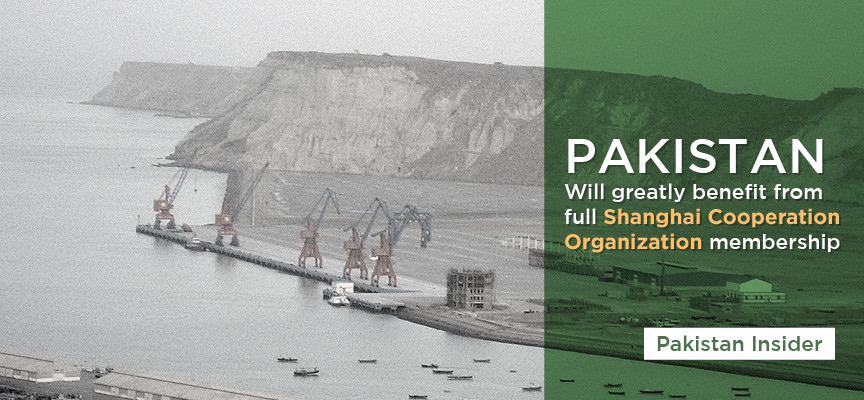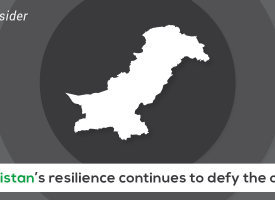In the picturesque Russian city of Ufa, members of the Shanghai Cooperation Organization (SCO) will hold a landmark summit from 9-10 July to discuss means of expanding the regional bloc’s role in the times to come. Russia and China, traditionally considered as the primary adversaries of Western hegemony in the Eastern hemisphere, will be spearheading this meeting which will witness full participation by member and observer states.
Pakistan, like India, is an observer state at the SCO. Beijing is extending all-out support to the former and Moscow to the latter. Both Pakistan and India, bitter enemies since 1947, have reached the verge of nuclear confrontation several times in the past. The situation today is no different either. Provocative and hawkish statements frequently issued by Indian politicians have invited the disgust of Pakistan, compelling Islamabad to issue minced yet heavy reactionary statements. Resultantly, an atmosphere of severe distrust and precaution has once again come to set. The amount of Confidence Building Measures (CBMs) which were being placed since the past few years seem to be quickly eroding.
No more American pacifiers
The US, considered by many as the current world superpower, has been looked upon as a mediator of regional conflicts which rushes to diffuse tensions and maintain world peace and stability. Since the Cold War era and especially after 9/11, the US has considered Pakistan its frontline ally in the so-called War on Terror; Pakistan has, for Washington, become a necessity to ensure a safe and non-humiliating withdrawal from Afghanistan. To that effect, some seriousness has been shown with the usual sharing of excessive
Despite all this pampered treatment, Islamabad and New Delhi do not seem much impressed with Washington anymore. In fact, it seems the American geostrategic doublespeak seems to have raised further suspicions among traditional thinkers in both these countries who have been observing US double-dealings in the Middle East; most notably, the US support to the Shiite regime of Iraq on the one hand and, in stark contrast and irony, support to the Sunni Gulf states against the Syrian regime. Pakistan in particular considers the American motives as reflective of a grander scheme of things in which the US would most likely position India as a regional superpower and central coordinator of its interests. This is, of course, a very valid concern. On the other hand, India too is precautious of the US because it wants to ensure its outreach to the energy-rich Central Asian Republics (CARs) via Iran.
Pakistan has a very strong bond with China which was solidified further recently with the signing of the mutually-beneficial China-Pakistan Economic Corridor (CPEC) project. Similarly, India has a good relationship with fellow BRICS countries and has a soft corner with longtime strategic ally Russia, one it will never risk disappointing. Hence it can safely be concluded that the American pacifier which once shushed fuming nuclear-armed archrivals has become useless. Civil and military aid from across the Atlantic is not going to garner any considerable support.
Enter the SCO: China and Russia take the lead
Out goes Washington and in steps the SCO or, to be fairly precise, Beijing and Moscow. With China advancing firmly with its geoeconomic
Pakistan’s geostrategic location gives it the weightageto ensure its state interests are prioritized by all parties (countries) concerned. It has had enough loans and aid from the West, what it now needs is economic uplift and a “strategic shield” in the region to protect it from further isolation. Many governments in Islamabad have borne this isolationist curse, resulting in near-to-zero foreign investor confidence and diplomatic aggression by various international bodies to “do more”. This mantra is of a bygone era and Pakistan has had enough.
Yuri Ushakov, aide to Russian President Vladimir Putin, said that Pakistan and India will be most likely made full-fledged member states of the SCO in this year’s Ufa summit. This desire was repeated by Russian presidential special representative BakhtiyerKhakim
The rising Pakistan under what we call “The RaheelSharif Worldview” is a manifestation of the long-proposed “Look East” policy. The global strategic balance is tilting once again and China is eventually poised to end America’s exclusive status as a superpower. New alliances will be forged, understandings will be initiated and relationships built. But Pakistan, fortunately, has been part and parcel of this coming New Age since long, and Beijing knows this very well. Economically, socially and militarily, China and Pakistan need each other. Unlike the US which reminded Pakistan of “development before aid”, China believes in “aid for development”, a completely different approach. Rightly so, China upholds that regional prosperity, at least in and around the conflict zones in Afghanistan (i.e. Pakistan on priority) can only be guaranteed if these countries are given economic uplifting for development. Consequently, social behaviors which are presently inclined towards extremism, violence and crime will be curtailed once and for all. A viable economy ensures employment opportunities.
What about Russia? In recent years, the former “Great Bear” has been approaching Pakistan with a renewed outlook; a strategic alliance between Islamabad and Moscow is still a farfetched proposition but at the end, common interests can unite even the bitterest of (former) enemies as time passes by. Such is the evolving state of global affairs. There are four fundamental reasons for Russia’s newfound support for Pakistan:
- Pakistan’s expertise and influence in counter-terrorism, especially against jihadist groups
- Access to the oft-quoted “warm waters” of the Arabian Sea, which Russia hopes to access through peaceful, friendly and cooperative means
- Pakistan’s influence in Afghanistan, which can ensure peace along Russia’s immediate neighborhood
- The mineral-rich province of Balochistan
As “elders” of the SCO, China and Russia have apparently developed a clever scheme to safeguard the respective national interests of Pakistan and India, respectively, and ultimately include two promising strategic partners in South Asia. The envisioned end-result is remarkable: China and Russia handle affairs in North and Central Asia whereas Pakistan and India safeguard the South. What could be a more ideal scenario?
Pakistan’s interests in the SCO
As superficial as it may seem, Pakistan seems committed to playing its due role in the SCO; as mentioned earlier, functioning under the aegis of the SCO will give Pakistan the “shield” it needs to venture into domains which were long denied because of subservience to US restrictions and bindings. A boom in scientific, technological, educational and economic sectors is guaranteed if Pakistan is made a full member of the SCO.
At a recent ceremony, President Putin stated that inclusion of Pakistan and India in the SCO will “enhance” its authority and facilitate fighting against the menace of terrorism, extremism, narcotics trade, etc. This is a dilemma facing SCO members and observer states since long; Xinjiang (China), Chechnya (Russia), FATA and Balochistan (Pakistan), Red Corridor (India) and Afghanistan are just a few examples of the issues which this regional forum could sit together and resolve. A unified collective in Asia will help earn Pakistan the credibility it has long sought to show its resolve against the menace of terrorism. Moreover, the Regional Anti-Terrorism Structure (RATS) operating under the SCO umbrella could help foster better understanding among member states, especially Pakistan and India. The South Asian Association for Regional Cooperation (SAARC) has so far proven to be an utter failure and simply cultural gimmicking because it does not have any undisputed global power overseeing its routine affairs. This is where China and Russia, as the force drivers and stabilizers in the SCO, can take the lead.
China and especially Russia is eagerly looking forward to pass the draft of “SCO Development Strategy Towards 2025”, details of which are not yet available. Official statements suggest it is a comprehensive regional framework for an all-members-inclusive development in the politico-socio-economic and security sectors. This 10-year strategic plan will prove as a foundation stone for the coming New Asia; more powerful, sustainable and influential.
Security (counter-terrorism, counter proliferation and narcotics, etc) is just one of the many aspects from which Pakistan can prosper as a full member of the SCO. A regional patronage closer to home (Beijing) than one across the world (Washington) will effectively boost development and progress for Pakistan and bring it on a level near an aggressive and war-mongering India, if not higher.
Most importantly, China’s support for Pakistan’s stance on the Kashmir and Gilgit-Baltistan issues will add weightage to Islamabad’s diplomatic efforts in giving Kashmiris the right to self-determination and maintaining water security.
On the other hand, India believes it is in a lose-lose position with respect to the SCO: if it becomes a member state, it will be bound to abstain from aggression against Pakistan under the watchful eye of the SCO secretariat; on the other hand, not becoming a member of the SCO will deprive India of a very viable opportunity to make safe inroads in the CARs.
Conclusion
Pakistan has come to realize that in order to be an “Asian Tiger”, it must own up to the continent and region where it is situated. The Cold War-era attachment with the Middle Eastern hotbed should be shed once and for all. Membership of the SCO will give Pakistan the golden chance of leaving its imprint on the entire North and Central Asian zones. Most importantly, it is the exchange of regional best practices which Pakistan simply cannot afford to miss anymore.
Featured image credit: wikipedia.








Impressive article, i really appreciate, thanks
I love Pakistan do u have any prblm I’ll do any thing